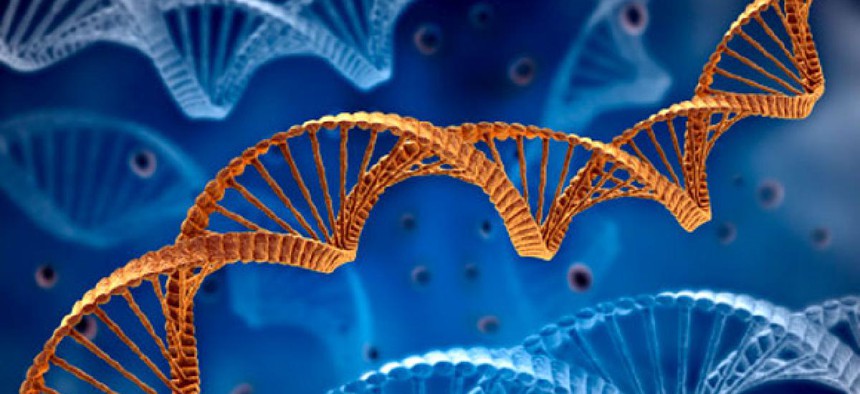The Question of Whether We Can Patent Genes Heads to the Supreme Court

Thinkstock
Does the centuries' old method for protecting intellectual property still apply when the invention comes straight out of the human body?
While tech types have been crowing over how broken the software patent system has become, the medical community is dealing with a much more serious question: Should we be able to patent genes? That is, does the centuries' old method for protecting intellectual property and rewarding research still apply when the invention comes straight out of the human body? The scientific community is rather divided over this one, but with oral arguments on a case filed by the American Civil Liberties Union and Public Patent Foundation kicking off on Monday, we'll have an answer to this tough conundrum soon enough.
The case calls into question seven patents held by Myriad Genetics, a company started by the geneticist who located and isolated the BRCA1 and BRCA2 genes in the early 1990s. These are the two genes that indicate whether a woman is more susceptible to breast cancer, and the discovery stood to save a lot of lives. However, because of Myriad's patents on the decoded snippets of DNA — they literally own the rights to that piece of the human genome — other companies were barred from making the tests that women would use to see if they carried the BRCA1 and BRCA2 genes. This gave Myriad a complete monopoly over the market. Geneticists weren't even allowed to do researcher the gene without Myriad's permission.
Obviously, a lot of people in the medical community don't like Myriad's approach. Lori Andrews, a law professor who wrote a dissenting brief to the Supreme Court for the American Medical Association, told Reuters that "Myriad's exclusive control has led to the misdiagnosis of patients and has precluded the deployment of improved genetic tests." It's not just Myriad any more either. Since those early patents, thousands of more companies have staked out their own claims to piece of the human genome. Genetic researcher Christopher Mason of Weill Cornell Medical College estimates that about 40 percent of the human genome has now been patented and says this sets a really bad precedent. "The overabundance of gene patents is a large and looming threat to personalized medicine," Mason argues. "Individuals have an innate right to their own genome, or to allow their doctor to look at that genome, just like the lungs or kidneys."





